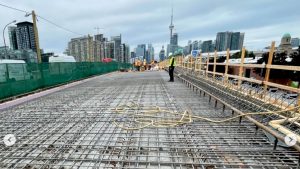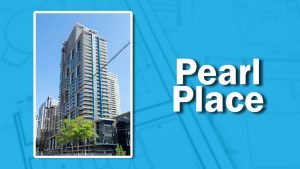Although Ontario has tighter rules than Florida concerning structural inspections and reserve funds for condominiums, the tower collapse in Surfside has nevertheless brought attention to building integrity and condo board governance in this province.
Armand Conant, partner with Shibley Righton LLP’s condominium law group, could be called a “condo crusader.” Conant is a past-president and board director of the Toronto Chapter of the Canadian Condominium Institute (CCI). Over the past 15 years as chair of CCI’s Legislative Committee, he has submitted numerous briefs and recommendations to government. Conant spoke with the Daily Commercial News concerning the window of opportunity presented by Ontario’s ongoing building code consultations and how changes might affect builders, project developers and unit owners.
It seems any discussion concerning condominium legislation is a three-party conversation.
That’s true. We’re trying to bring all three parties together; owners, developers and the government. But we’re not radicals. We understand developers have to build a product and make a profit. We recognize the sensitivity of price points. As a result, our discussions are directed to the provincial building code (OBC).
What’s at the heart of your consultations with government?
We usually have three or four top priorities every time we do a submission. It all comes down to improving the OBC for multi-unit residential buildings. We want better buildings.
What are examples of such improvements?
One key concern is noise. We’d like the OBC to address increased sound attenuation construction as a standard within buildings. Another is the flow of water after an incident, for example a sprinkler failure or an overflowing toilet. There should be code-required provisions to impede water moving to the floor below, not just from individual units but from the entire floor above including hallways. Preventing or impeding water leakage downwards could prevent damage that could cost tens of thousands of dollars.
There’s also the question of building longevity. For example, the exterior cladding of commercial buildings usually have curtain protection to prolong the life of the exterior cladding and windows. It’s an option, it’s expensive and not typically done on residential buildings because it’s not part of the building code. I’m advised by engineers that this curtain coating not only increases the life expectancy of exterior cladding but also slows down the migration of water leaks from the exterior into the interior.
Aren’t these more of an insurance issue?
It all circles back to the objective of building better buildings through improvements to the building code. This in turn dovetails with the current insurance crisis in Canada. Condominium corporations have been facing huge increases in premiums and deductibles to the point that some buildings are virtually uninsurable. Improvements to the building code would have a ripple effect of improving insurability and helping to reduce insurance claims.
You also have concerns with common element deficiencies and Tarion coverage, correct?
Tarion is funded on a per-unit charge to developers. It covers both construction deficiencies within units and common elements, including those not built as-designed or never built at all. After deducting the required per unit deposit protection, the funding required for any construction deficiencies costs comes from the balance remaining in Tarion’s funds and through a civil action or settlement.
The problem is that some developers have found a loophole. They’ve introduced a provision in their documents forcing condo corporations to waive their common law rights. Potentially that means the funding needed to correct common area deficiencies must come solely from Tarion, which usually is not sufficient. Therefore the owners end up paying. One of the proposed Ontario’s Condominium Act reforms from 2015 still awaiting proclamation is a clause closing this loophole.
The bottom line is this. The current OBC is outdated in many respects and was drafted generally. With so many interpretations, some developers have been able to build a less-than-better product. The condominium consumer industry wants to change that by advocating changes to the OBC and through the proclamation of previously approved reforms to Ontario’s Condominium Act.
John Bleasby is a Coldwater, Ont.-based freelance writer. Send comments and Legal Notes column ideas to editor@dailycommercialnews.com.











Recent Comments
comments for this post are closed